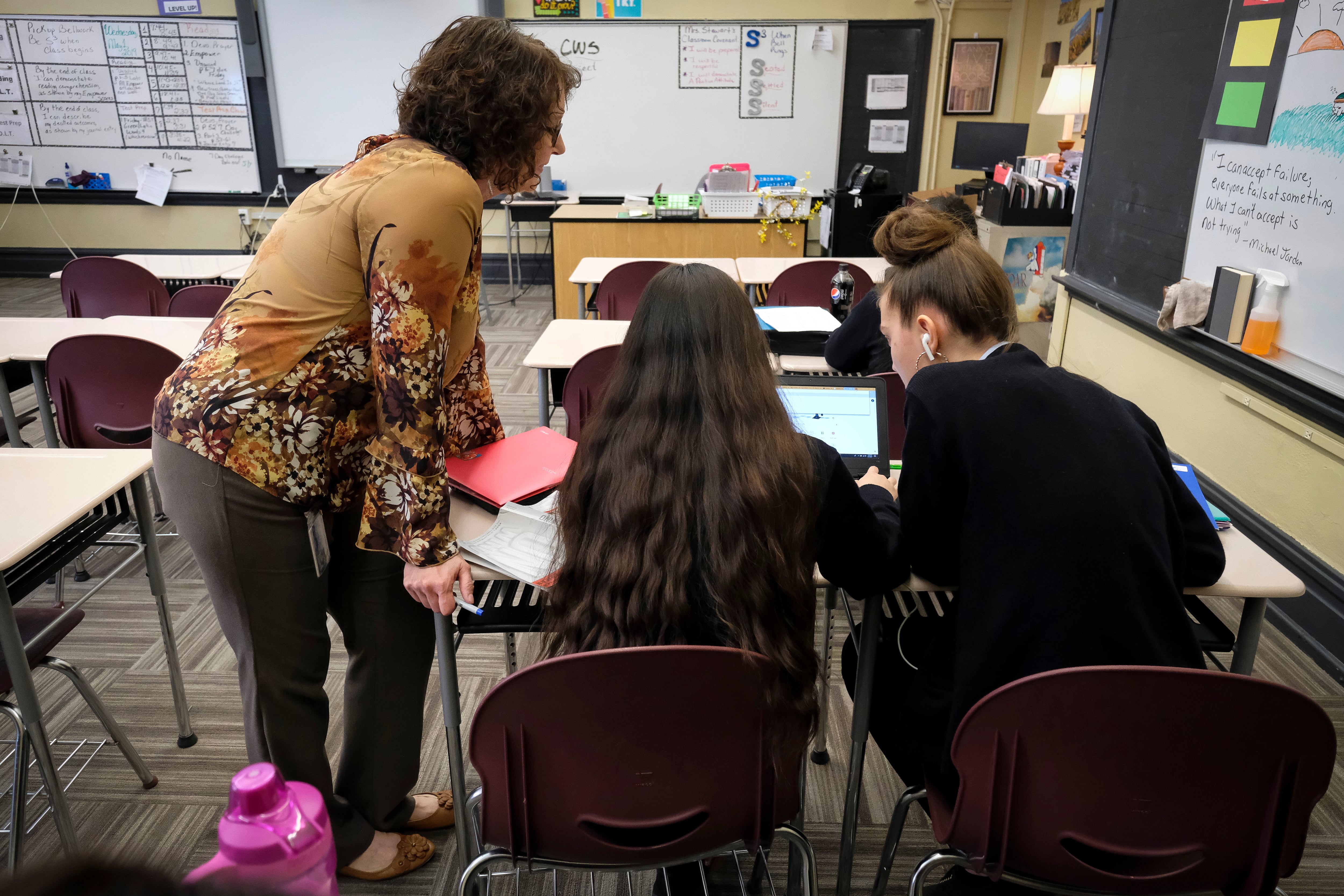Indiana education officials will allow a handful of school systems to take an unconventional approach to the length of their school year during the pandemic.
With the changes approved Wednesday, a few districts — including Center Grove Schools and Paramount charter network in Indianapolis — can offer longer school days to take advantage of in-person learning and cut back on e-learning days to help with planning.
They will still give the same number of hours of instruction as a normal school year but don’t have to do it in the standard 180 days.
“Under the current environment, every day with our students is a gift, and we treasure each moment for student instruction,” Brown County Schools Superintendent Laura Hammack told the State Board of Education.
About a dozen school systems sought to use a new state law, crafted before the pandemic, that aimed to lessen the burden of state training and reporting requirements. With the challenges of the COVID-19 crisis, they hoped to gain temporary flexibility as they take on different instructional models, relieve administrative tasks, and prepare to quickly adapt if the pandemic worsens.
But state education officials balked at waiving several training requirements in areas they saw as critical, including police training, bullying, and child suicide awareness and prevention. They only allowed schools to skip an annual report on data that’s already publicly available and requirements on addressing gang activity.
“I think right now the safety of our kids is even more heightened,” said board member Pat Mapes, superintendent of Perry Township Schools, “and that the areas of minimal standards of training — police departments as well as suicide training — is very important for everyone to go through.”
Board member Pete Miller, a former Republican state senator, countered that the state has tacked on too many annual requirements for schools.
“No one is saying that suicide prevention and these other items are not important. What we’re saying is that these are your non-academic things we’re asking schools to do,” Miller said. “And then pretty soon you’ve got the straw that breaks the camel’s back in terms of these non-academic things.”
The board also drew a line on how schools approach instruction to prevent significant reductions in school time.
Switzerland County Schools, for example, can do two-hour delayed starts once a quarter for professional development, but the board denied another district’s request for early dismissals on Fridays.
Baugo Community Schools’ request would have cut short educational time for students to help teachers manage the increased workloads of instructing both in-person and remote students simultaneously.
“Our problem is that we are having our teachers do two things at the same time. They are working incredibly hard and are giving enormous amounts of personal time to make this happen,” Baugo school officials wrote in a memo. “We recognize that during this pandemic, a flexible, virtual option is important but it has required a much more significant amount of time from teachers than anticipated.”
Schools can continue to ask for flexibility throughout the year, and state board members expect this round will signal what they deem acceptable. The waivers could also inform education policy in the future, as lawmakers will examine what districts requested and the effects of the changes.





